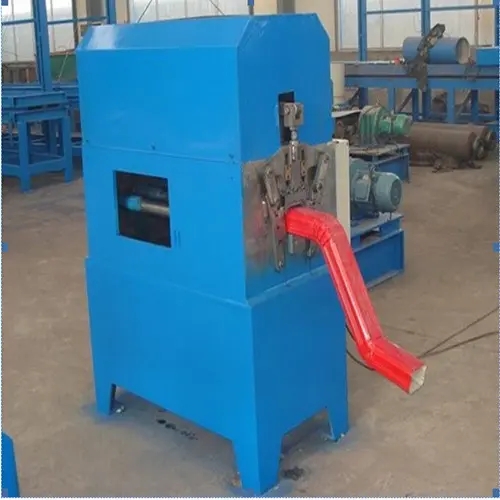
The Evolution of Road Barrier and Guardrail Making Machines
In the realm of highway infrastructure, the importance of road safety cannot be overstated. One of the pivotal elements contributing to road safety is the implementation of road barriers and guardrails. To meet the rising demand for these essential safety features, advanced manufacturing machines have been developed that focus on efficiency, precision, and sustainability. This article explores the evolution of road barrier and guardrail making machines, highlighting technological advancements and their implications for safety and efficiency.
The Importance of Road Barriers and Guardrails
Road barriers and guardrails play a crucial role in preventing accidents by redirecting vehicles away from hazards, such as steep drop-offs or oncoming traffic. Their design and construction are based not merely on aesthetic considerations but rather on their ability to absorb impact and reduce fatalities during collisions. As the number of vehicles on roads continues to increase, so does the need for effective barriers and guardrails. Consequently, the demand for sophisticated manufacturing techniques to produce these structures has surged.
Historical Context
The manufacturing of road barriers and guardrails has a rich history that dates back several decades. Initially, production processes were manual and labor-intensive, resulting in limitations in terms of speed and durability. The need for improved safety features led to the introduction of more resilient materials, such as steel, along with designs that could withstand high-impact scenarios. Over time, with the digitization of manufacturing processes, companies began to adopt more advanced technologies to produce guardrails that could meet stringent safety regulations while also being cost-effective.
Modern Manufacturing Techniques
Today, the production of road barrier and guardrail making machines utilizes state-of-the-art technologies, including Computer Numerical Control (CNC) and automation
. These machines are designed to enhance productivity and ensure that each product meets rigorous quality standards.1. CNC Technology CNC machines allow for precise cutting and shaping of materials, which is vital in creating road barriers that can effectively absorb the force of a collision. The precise measurements ensure that the guardrails can be installed with minimal adjustments, reducing labor costs and time on-site.

2. Automated Production Lines Advanced production lines can operate around the clock, maximizing output. These lines can produce various designs and specifications of guardrails seamlessly, allowing manufacturers to cater to diverse client needs without sacrificing quality.
3. Robotic Assistance Robotics in manufacturing has revolutionized the assembly process. Robots can handle heavy materials and perform tasks that might be dangerous for human workers, thereby enhancing safety in manufacturing environments. They also ensure consistency in quality, as they operate with precision far beyond human capability.
4. Sustainable Practices As environmental concerns rise, manufacturers are increasingly turning to sustainable practices. Modern machines can utilize recycled materials without compromising strength and durability, ensuring the production process aligns with global sustainability goals.
Looking to the Future
The future of road barrier and guardrail making machines looks promising. With the integration of smart technologies, such as the Internet of Things (IoT), manufacturers can monitor production in real-time, leading to better quality control and reducing waste. Moreover, advancements in materials science may yield even stronger and lighter materials, further enhancing the safety features of road infrastructure.
In addition, predictive analytics could play a vital role in maintaining equipment used in manufacturing. By analyzing data from machines, manufacturers can predict when a machine might fail or require maintenance, thereby avoiding downtime and ensuring continuous production.
Conclusion
In conclusion, the evolution of road barrier and guardrail making machines is a testament to the advances in technology and the continuous quest for safety in road infrastructure. As the manufacturing sector embraces automation and smart technologies, the capacity for producing high-quality barriers and guardrails will only grow. This evolution not only fosters greater safety on the roads but also underscores the importance of innovation in solving modern challenges. The road ahead is brighter and safer, thanks to these remarkable machines that ensure the reliability of our road safety measures.